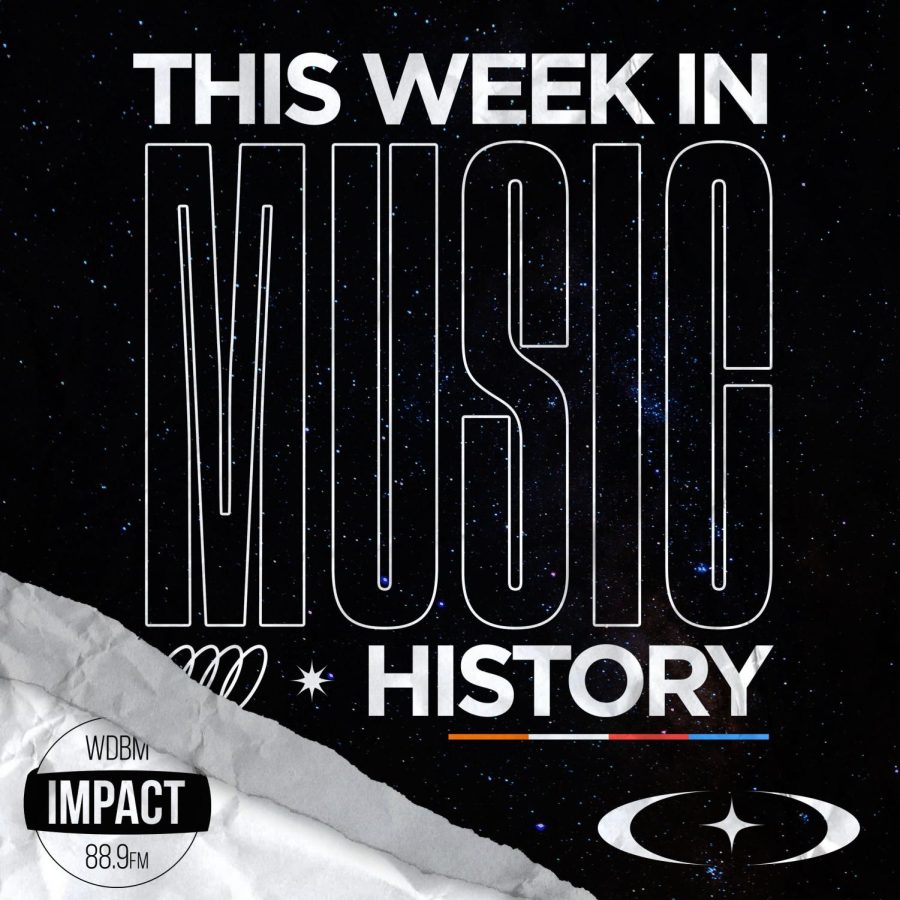John Bonham was discovered dead by his bandmates on the morning of Sept. 25, 1980, at only 32 years old. His death was the direct result of a 12-hour binge drinking spree, which would ultimately result in him choking on his own vomit during sleep. An inquest later showed that in 12 hours, he had consumed over 40 vodka shots. There were no other drugs in his body at the time, so it was this alone that had led to disaster.
Bonham is widely considered to be one of the greatest drummers of all time. He was, and still is, a prominent figure in rock ‘n’ roll. Bonham was the powerhouse drummer of Led Zeppelin — his powerful and unorthodox style drove the band’s sound instead of simply supporting the flow and tempo, as a drummer traditionally would. Bonham often followed Jimmy Page’s guitar instead of the bass, creating a loud, raw and punchy flow that drove the band to stardom.
Bonham was born in Redditch, Worcestershire, England in 1948. He began to dabble with percussion at the age of five, creating makeshift drum sets out of random household items. He later received his first drum set from his father at 15. Bonham was mostly self-taught, which resulted in an unorthodox, hybrid style — a fusion of funk and latin drumming — that can instantly be recognized.
This was paired with unique grooves and shuffle techniques that furthered the breakout sound of the band. Bonham’s talent was increasingly praised with the release of “Moby Dick,” featured on the band’s 1969 release Led Zeppelin II. This song featured a long, complex drum solo that was something unheard of at the time, and it showed that Bonham demanded respect.
Sept. 25 will remain a sad day, not just for rock ‘n’ roll, but for music as a whole. The loss of a musical powerhouse like Bonham is a heavy thing, and he will be forever missed. In such a short time, the impact of his art was an incredible turning point that should never be forgotten or ignored.
~ Ian Randall
On Sept. 27, 2004, famed music producer Phil Spector was indicted for the murder of Lana Clarkson. She was found shot dead in his mansion on Feb. 3, 2003. A limousine driver said that Spector came out of the house holding a gun saying, “I think I killed someone.”
This was not Spector’s first run-in of this type. He had pulled a gun on women four other times: each time he was drunk and each time they were not interested in him romantically. The man once synonymous with groundbreaking production had become synonymous with murder.
Throughout his time in prison, Spector had many health complications. In January of 2021, he was taken to San Joaquin General Hospital and died shortly thereafter. Spector had once been hailed as a great producer, idolized by musical geniuses Brian Wilson, Bruce Springsteen and John Lennon. But it seems that the longer time goes on, the worse of a taste he leaves in listeners’ mouths.
~ Liam Comrie
Touring in Sweden off the success of their acclaimed third studio album, Master of Puppets, Metallica’s bus crashed on the night of Sept. 27, 1986. This crash killed Cliff Burton, the bassist for the band.
There is only so much accomplishment-listing and laurel-touting that can be done for someone like Burton, who died at 24 years old — barely two years older than I am at the time of writing this. It becomes especially difficult to quantify the life of someone who so evidently had so much more to give, as Burton continued to blaze his own trail in metal until the day he died.
37 years after his death, what comes to mind is not a laundry list of achievements, but the song “Orion,” the penultimate instrumental track on Master of Puppets. If there is any song to highlight the chasm Cliff Burton’s departure has left in metal, it is this one. The militaristic chugs that open the track are broken in favor of a gentle waltz from his bass, arguably his most distinctive bassline and one that infuses a masterwork of aggressive music with the heart it needs. Moaning guitar solos take the place of lyrics, floating over his foundation, replacing anger with the aching beauty of his art.
This is what he left for us — a microcosm of himself in music — a tender but firm voice in a world of frustration. With every pluck of his fingers etched into the annals of rock history, Cliff Burton is long away — if ever — from being forgotten.
~ Nick Sanchez
25 years ago, Tony Hawk launched the first installment of his wildly popular video game series. The first game, Tony Hawk’s Pro Skater, was released on Sept. 29, 1999. The game was a breath of fresh air in the gaming scene, combining elements of arcade games with the real life sport of skateboarding. Fast-paced gameplay and many zany elements made the game a hit.
One of the game’s best features was the sublime soundtrack. It was filled with music that a real skater of the time would have listened to, featuring bands like Dead Kennedys, Primus and The Suicide Machines. Tony Hawk’s Pro Skater‘s soundtrack was revolutionary because it exposed a whole new generation to punk, alternative rock and ska-punk. It was something that defined the game and set it apart from anything else on the market.
The video game series would go on to have many more successful titles, which included larger soundtracks that were even more star-studded: Red Hot Chili Peppers, Motörhead, KISS, Anthrax and a multitude of other rock legends were featured. In short, the game served as a way for people to enjoy new music and skateboarding. The game series to this day has a cult following of fans who grew up on the game. Many are thankful for the absolute masterpiece of a game and soundtrack. Thank you, Tony Hawk, for signing a deal with Activision to launch one of the most legendary game series of all time — one that will live in our memories forever.
~ Alex Jimenez-Vega












